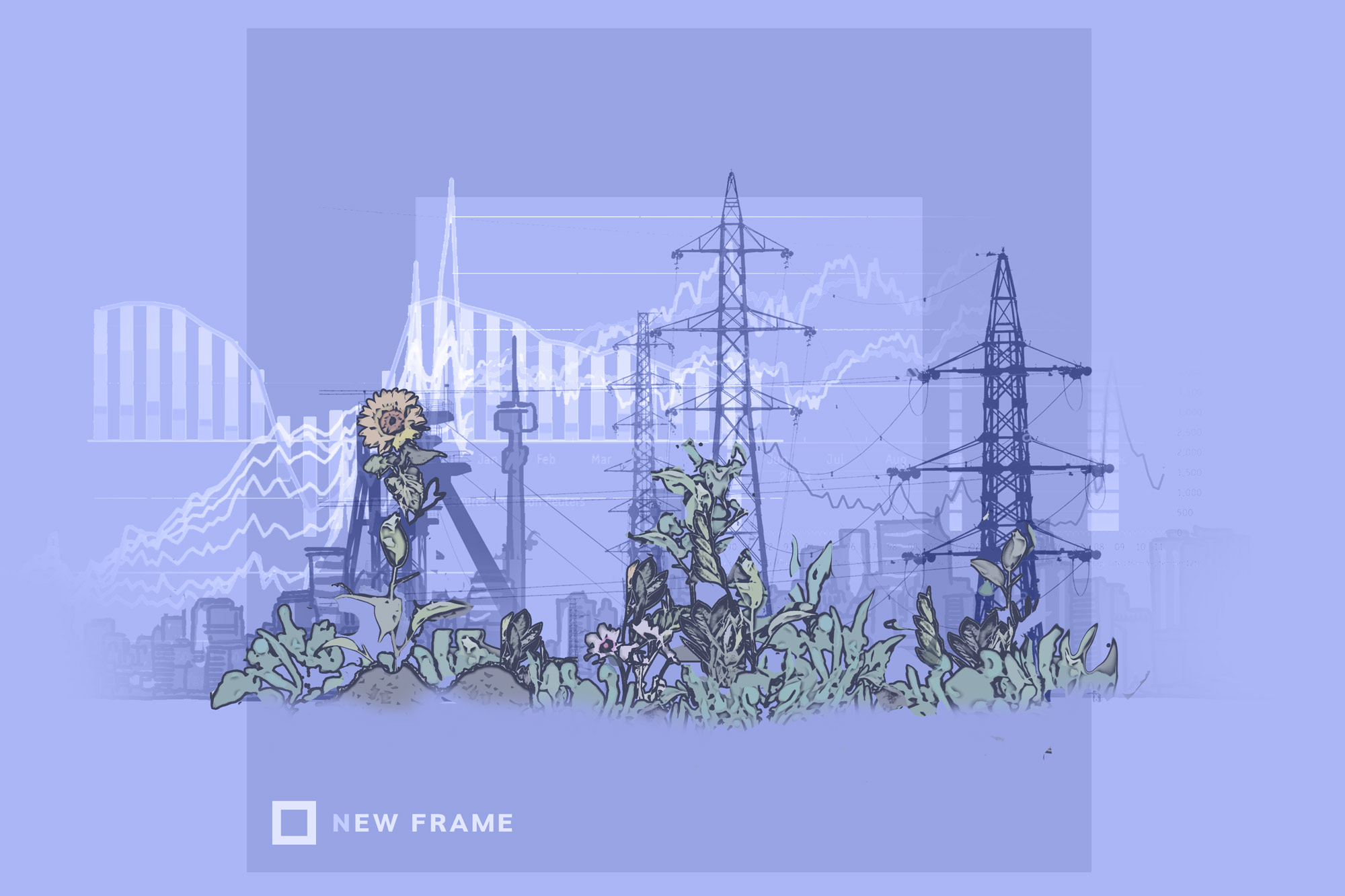Reorganising the economy for a better future
This conclusion to the New Frame, New Economy forum on the minerals-energy complex emphasises the urgency of climate action by involved and informed citizens and communities.
Author:
3 September 2021

There is perhaps no conversation more pressing than the climate crisis and the ways it is deepened by our current economic arrangements. And that conversation benefits greatly from interlocutors as comradely and knowledgeable as Neva Makgetla, Brian Kamanzi and Lumkile Mondi.
Some brief points by way of a response, then.
First, urgency. The recent Intergovernmental Panel on Climate Change (IPCC) report was widely referred to as signalling “code red for humanity”. Climate change is worse – and moving faster – than we previously thought. An interim report by the panel two years ago had already emphasised the importance of keeping global warming to below 1.5°C, and the dire consequence of failing to do so. Now, the IPCC predicts that we will probably pass 1.5°C in the next 10 years and that, if there are no further rises in global emissions, we will likely pass 2°C by around 2040.
Related article:
Given that southern Africa is warming at roughly twice the global rate, that’s a temperature increase of 3°C to 4°C. More multi-year droughts are inevitable. Rain will come in deadly bursts. The possibility of serious drought spreading to Gauteng is increasingly likely, along with the collapse of the mielie crop and mass death of cattle. Farmers in Mozambique, Zimbabwe and Madagascar have already experienced food scarcity and famine in some areas and displacement of people to cities because of drought. More will follow. We have maybe two decades to stop the worst effects of the climate crisis.
Second, speed. We need alternative energy strategies rapidly. In South Africa it’s a serious possibility that Eskom may both continue to rely on coal – think Medupe, Kusile and possibly a new coal power station at the Musina-Makhado Special Economic Zone, as Makgetla points out – and dump coal rapidly as infrastructure ages and the threat of boycotts of carbon-intense exports increases. Communities will be dumped, and the transition will not be just.
Already in crisis
For Mpumalanga and Limpopo, or the drought-hit areas of South Africa already in a climate emergency, this is urgent. It is essential that the transition is not left to local municipalities that are simply too weak to provide the scale of support that is necessary. Workers, who damn the health impacts of extractive industries and the fact that they cannot afford electricity in any event, are already expressing pain at job losses that have already occurred, and fear over future ones. All the while, bosses still think the cork of better training will plug the tsunami that threatens to turn swathes of South Africa into a wasteland.
The United Nations Climate Change Conference in Glasgow, Scotland, in November this year will take place with the IPCC report in the foreground. The conference may well prompt a new wave of green private investment around the world. But that will not be enough. It most certainly will not guarantee that a transition will be just, as Kamanzi emphasises.
Related article:
Third, the question first posed by American historian Mike Davis in 2010: Who will build the ark? Davis was torn between the pessimism of his intellect (the sheer scale of the climate crisis) and the optimism of his imagination – the possibilities for low-carbon cities, how public affluence might win out over private wealth, and the possibility of what he called “Earth-friendly sociality”. The point Davis and many others make is that the climate crisis is an opportunity to reorganise economies and societies for the better.
Fourth, what must we do? We must act, of course, as emphasised by Mondi. He, Makgetla and Kamanzi agree that we need a just, coherent, national plan of action, which prioritises citizens, workers, communities, retraining and green reindustrialisation. The public sector must play the central, leading role, with much bolder industrial policy, and we need to fight for it.
None of this can be done without a radical relook at the Department of Mineral Resources and Energy, which perennially favours business over the environment and consumers. Nor can we leave it to the relatively newly formed Presidential Climate Commission, though its formation and its deliberations so far are bringing the South African debate more up to global speed. What that commission resolves to do – and how it might tackle powerful vested interests embodied in the minerals-energy complex, be they new or old – is what we must all try to shape and influence. And we must do so now.


